MENTAL HEALTH IN THE WAR ON TERROR
Mental Health in the War on Terror
CULTURE, SCIENCE, AND STATECRAFT
Neil Krishan Aggarwal
 COLUMBIA UNIVERSITY PRESS NEW YORK
COLUMBIA UNIVERSITY PRESS NEW YORKCOLUMBIA UNIVERSITY PRESS
Publishers Since 1893
New York Chichester, West Sussex
cup.columbia.edu
Copyright 2015 Columbia University Press
All rights reserved
E-ISBN 978-0-231-53844-2
Library of Congress Cataloging-in-Publication Data
Aggarwal, Neil Krishan, author.
Mental health in the war on terror : culture, science, and statecraft / Neil Krishan Aggarwal.
p. ; cm.
Includes bibliographical references and index.
ISBN 978-0-231-16664-5 (cloth : alk. paper) ISBN 978-0-231-53844-2 (e-book)
I. Title.
[DNLM: 1. Mental HealthethnologyUnited States. 2. Bioethical IssuesUnited States. 3. Prisoners of WarpsychologyUnited States. 4. TerrorismpsychologyUnited States. 5. VeteranspsychologyUnited States. WA 305 AA1]
RC451.4.p7
616.890086'97dc23
2014020991
A Columbia University Press E-book.
CUP would be pleased to hear about your reading experience with this e-book at .
Cover design: Milenda Nan Ok Lee
Cover image: AP Photo/Brennan Linsley
References to websites (URLs) were accurate at the time of writing. Neither the author nor Columbia University Press is responsible for URLs that may have expired or changed since the manuscript was prepared.
The question or questions that have to be asked are: What types of knowledge are you trying to disqualify when you say that you are a science? What speaking subject, what discursive subject, what subject of experience and knowledge are you trying to minorize when you begin to say: I speak this discourse, I am speaking a scientific discourse, and I am a scientist. What theoretico-political vanguard are you trying to put on the throne in order to detach it from all the massive, circulating, and discontinuous forms that knowledge can take?
Michel Foucault, Society Must Be Defended
CONTENTS
FOUCAULTS PENETRATING INSIGHTS INTO THE connections between knowledge and power, between science and politics, have gripped me since the declaration of the War on Terror. I entered medical school in 2000 and watched the 9/11 attacks unfold on live television. As I attended medical conferences, I began perceiving the creeping influence of politics within academic discussions: bioethicists debated the philosophical grounds for torture, and psychiatrists conjectured about the irrational motivations of suicide bombers. Medical scientists placed certain theoretico-political vanguards related to national security on the throne of science at this exceptional moment of American history. What perspectives were becoming minorized and majorized in the War on Terror, and how did these perspectives immortalize cultural values, beliefs, and orientations as scientific knowledge? In a broad sense, how has the War on Terror changed medicine, and how has medicine changed the War on Terror?
The goal of this book is to analyze the cultural meanings of mental health knowledge and practice produced throughout the War on Terror. My frameworks for studying the interrelationships of mental health, culture, and power come primarily from cultural psychiatry and medical anthropology. Central to both disciplines is the tenet that medical systems are cultural systems with beliefs, behaviors, and meanings transacted among individuals in social institutions. I aim to show through a wide array of materials that we can study medical systems in the War on Terror as cultural systems. These source materials include government documents; reports and position papers from nongovernmental organizations; legal files such as charge sheets, motions, rulings, and transcripts; direct and indirect interviews; newspaper articles; and scholarly publications. These analyses are not intended against the mental health system as a whole, and they certainly do not belong to the antipsychiatry movement. As a psychiatric clinician and researcher, I have witnessed the healing power of effective medications and psychotherapy. However, mental health suffers from a long history of stigma in much of the world. The peculiar cultural construction of mental health knowledge and practice in response to the War on Terror may exacerbate this mistrust. This book is not an exhaustive catalog of mental health knowledge and practice in the War on Terror, nor is it meant to be polemical or apologetic. On the contrary, the book takes seriously the idea that mental health routinely faces sharp challenges from the state. Mental health knowledge lends itself to conflicts of interest between the individual and society because it is employed in practice to differentiate normal and abnormal states of being within society. The state may wish to punish undesirable populations, and political uses of psychiatry may result when mental health professionals work uncritically toward state interests.
This book appears at a time when three cultural trends have affected medicine. First, most attention to mental health in the War on Terror has centered on bioethical debates. While mental health professionals involved in coercive interrogations or questionable clinical practices certainly deserve scrutiny, bioethical violations represent a larger issue of employing mental health knowledge and practice to advance the goals of statecraft. Investigating this larger issue is the goal of this book. Second, cultural psychiatry has typically drawn upon many disciplinespsychology, sociology, anthropology, and cultural studiesto create a vibrant specialty that understands mental health and illness in its social and cultural contexts. The rise of evidence-based medicine has disqualified ways of knowing and learning aside from large clinical trials. In my capacity as a psychiatric researcher and educator, I worry that our trainees ignore the social sciences and humanities, which have much to teach us about those areas of life, such as birth, death, pain, and suffering, to which medicine should not lay exclusive claim. Third, the representation of Muslims and Islam in medical scholarship has often gone unchecked. Many stereotypes that would not be countenanced for other groups are willingly tolerated and even promoted. Scholars of religion and cultural psychiatrists can collaborate to ensure that such negativity is not disseminated under the guise of science. I hope that this book will stimulate critical discussions around the cultures of biomedicine through incisive examinations of its professional literature.

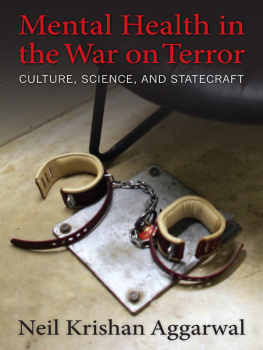


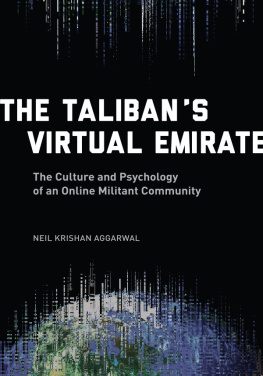

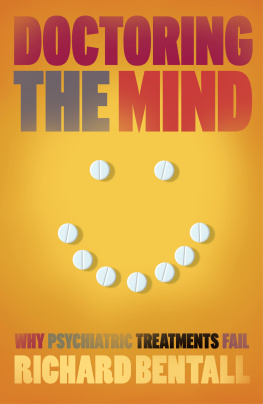

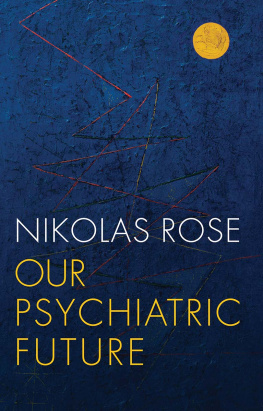
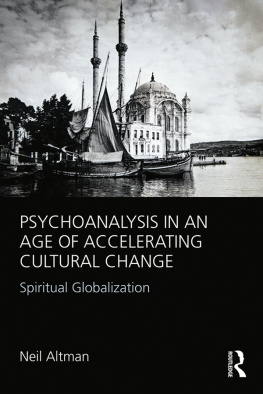

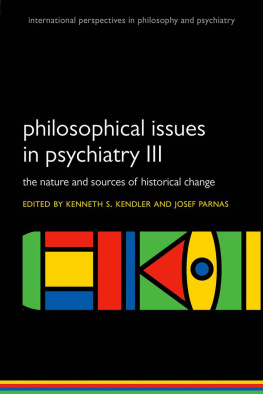

 COLUMBIA UNIVERSITY PRESS NEW YORK
COLUMBIA UNIVERSITY PRESS NEW YORK
